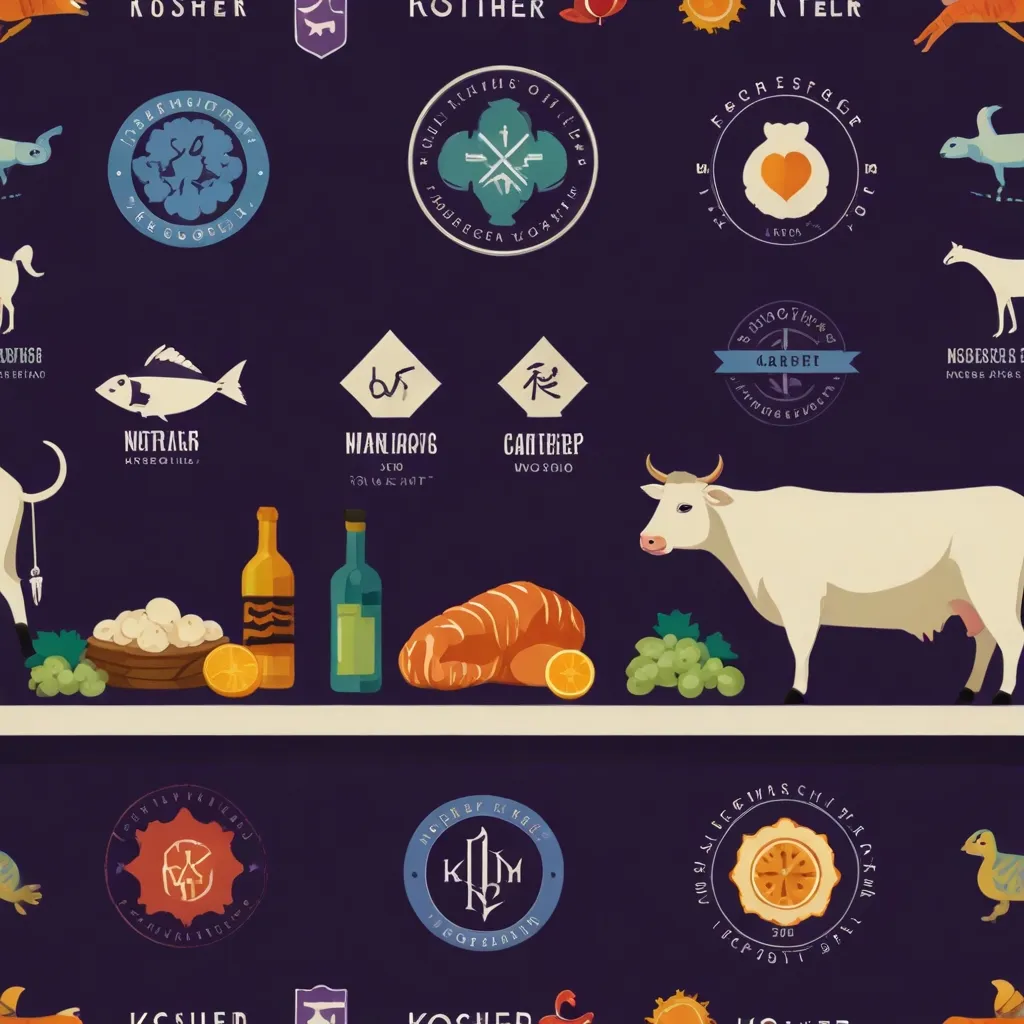Kosher, in Jewish practice, is a pretty detailed set of dietary laws, also known as Kashrut. These rules aren’t just a casual guideline but are deeply woven into the fabric of Jewish life, dictating what’s okay to eat and how food should be prepared.
Animals that are kosher? They need to have cloven hooves and chew their cud. So, cows, sheep, goats, and deer make the cut. Pigs, camels, and rabbits, however, are a no-go. Pigs, for instance, have split hooves, but they don’t chew their cud. On the flip side, camels chew cud but their hooves aren’t quite right.
Fish rules are a bit fishy too, in a good way. Only fish with fins and scales are on the kosher list, meaning shellfish like shrimp and lobster are out. When it comes to birds, domesticated ones like chickens, turkeys, ducks, and geese are allowed, but birds of prey are not.
The way the animals are slaughtered is also a big deal. They must be done so with a method called Shechitah. This isn’t just any old way of slaughtering; it’s designed to be humane and reduces the animal’s suffering. The person handling this task, called a Shochet, goes through rigorous training.
One hard and fast rule? No consuming blood. The Torah states this quite clearly. Any hint of blood in food, and it’s not kosher. Post-slaughter, the meat goes through a special salting process to make sure all blood is out. Even eggs with blood spots get thrown out of the kosher club.
There are also bans on certain additives and ingredients. Gelatin, non-kosher rennet in cheeses, and lard fall into this category. Observant Jews often check labels religiously, pun intended.
Meat and dairy? Never the twain shall meet. Jews keep them separate, requiring different sets of dishes, utensils, and even washing protocols. After consuming meat, there’s a waiting period before dairy can be consumed.
This separation comes from a biblical commandment repeated three times. The idea is not just theoretical; many homes have two sets of everything to keep meat and dairy from crossing paths.
Even grape products can be tricky. Wine and grape juice made by non-Jews are avoided due to historical links to idolatry. That’s why Jews stick to grape products made under Jewish supervision.
In today’s world, keeping kosher might seem tough. But for many Jews, it’s an integral part of their religious practice. It’s not just about the food but turning eating into a ritual. People often liken the Jewish dinner table to a Temple altar, underscoring the sacredness of meals.
Modern supermarkets have made it somewhat easier to follow kosher practices. Certified products with a special logo called a Hechsher make the task simpler.
Even in hospitals, kosher meals can be easily found. Pre-packaged, these meals follow all kosher preparation rules, allowing patients to stay true to their beliefs even during a hospital stay.
In essence, the kosher dietary laws are vast, covering types of animals, preparation methods, and mixing rules. For observant Jews, it’s about showing obedience to God and staying connected to their heritage.






